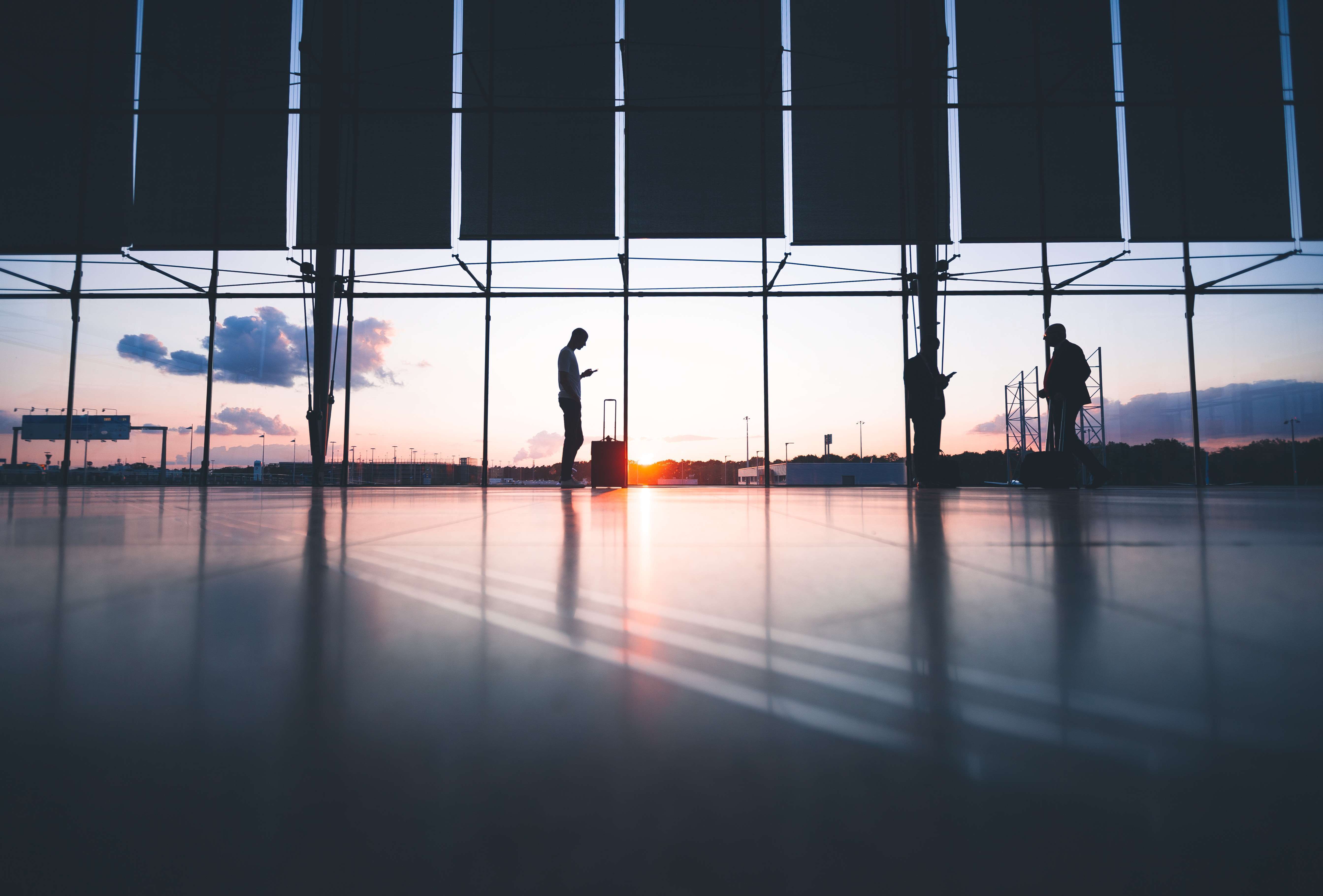
Immigration matters | COVID-19 Travel Restrictions | What your business needs to know
Enhanced restrictions from 15 March 2020
The Australian Government has introduced additional restrictions for inbound travellers which took effect from midnight on Sunday, 15th of March 2020.
Until further notice, all inbound travellers regardless of nationality (including Australian citizens and permanent residents) must self-isolate for 14 days after their arrival. There are limited exemptions to this for airline staff and maritime crew on commercial vessels, subject to these individuals taking and meeting other precautionary measures.
Previous travel restrictions continue to apply to foreign nationals who have spent time in Mainland China, Iran, Italy and South Korea within a 14 day period immediately prior to seeking entry to Australia. Where this applies, these individuals are advised not to attempt travel to Australia – if they do so, they will likely be subject to visa cancellation upon arrival (or denied boarding by the relevant airline). These restrictions took effect from the following dates:
- China – 1 February
- Iran – 1 March
- Republic of Korea – 5 March
- Italy – 11 March
There are exemptions to these country specific bans for Australian citizens and permanent residents, New Zealand citizens who are usually resident in Australia, immediate family members of Australian citizens and permanent residents, and diplomats. In these cases, self-isolation at home will be required after their return. All other individuals would need to spend at least 14 days in a third country before seeking entry to Australia. Case by case exemptions will also be considered for year 11 and 12 students seeking to return from China.
Business travellers and sponsored temporary workers
It is important to consider the latest self-isolation requirements in the context not only of business travellers but also Subclass 400 Short Stay Specialist visa holders, and sponsored Subclass 482 Temporary Skills Shortage visa holders.
The Government has announced that the requirement to self-isolate applies to all travellers entering Australia – there are no exemptions in place beyond those specified for airline staff and maritime crew.
This means that companies need to consider whether general business travel is essential or as an alternative whether meetings, contract negotiations and other business related activities could be undertaken remotely, utilising video-conferencing and other technologies.
If a business activity strictly requires personal attendance then a 14 day isolation period post-arrival in Australia needs to be factored in. This will not only be costly but also prove to be impractical in a lot of cases.
The same applies for individuals who are entering Australia as the holder of either a subclass 400 visa or a Subclass 482 visa.
Subclass 400 visas are often granted to facilitate entry of specialists who may be assisting with urgent specialist repairs, installations and similar activities. The self-isolation period again needs to be factored in and project and work schedules should be adjusted accordingly. This includes where an individual may be invited to Australia from an overseas related entity to deliver services to a third-party client organisation, including at a third-party worksite.
Subclass 482 visa holders are allowed a 60 day period after entry before they need to commence working with the sponsor – usually they would commence employment within a much shorter timeframe however until these restrictions are lifted, these individuals will need to be given at least a two week period to isolate themselves ahead of starting their roles.
Exemptions for airline staff and maritime crew
The Government has published a Fact Sheet which provides details on the restrictions and exemptions which apply to Commercial Vessels entering Australia, and their crew. Until yesterday, isolation measures applied to vessels that had travelled from or via mainland China within 14 days prior to arrival in Australia. Self-isolation measures now apply to all vessels regardless of where they departed from, in line with yesterday’s announcement – the self-isolation period in these cases commences from the last port of departure.
If a vessel reports that a crew member has been ill, a human health inspection will be conducted by a Biosecurity Officer on arrival. Full details on these restrictions can be found at this link (note again that these restrictions now apply to all vessels, not just those that have travelled from China).
For marine crew arriving from overseas by air to sign-on to a vessel, the ABF has confirmed these individuals will be permitted to board a domestic flight to enable them to join the vessel and then self-isolate, subject to meeting the following conditions:
- They must remain at the airport while waiting for their domestic connection, or in cases where the flight is the following day, they must self-isolate in a hotel;
- On arrival at the relevant port, they must board the vessel immediately, or in cases where they are unable to board until the following day/s, they must self-isolate in a hotel;
- Department of Agriculture, Water and the Environment (DAWE) must clear the crew to join the vessel and the Master must ensure these crew members do not disembark the vessel once they have boarded (the self-isolation period for these crew members starts from their day of arrival in Australia).
The following requirements will apply to marine crew signing off a vessel after arrival in Australia:
- For vessels arriving from China, Republic of Korea, Iran or Italy all crew must wait 14 days before signing off (if they are symptomatic they will not be permitted to leave the vessel); and
- For all other vessels, crew will be allowed to sign off to enable air travel to their home country unless they are symptomatic, subject to the following conditions:
- They must travel from the vessel directly to the airport; or
- If their flight is the next day, they must self-isolate in a hotel.
For airline crew arriving in Australia, these travel restrictions do not apply provided these airline crew utilise appropriate personal protective equipment during the journey and in public spaces (including airports) and the crew member is not displaying any symptoms. This includes off-shift crew travelling as passengers to reposition at another location – the same process must be followed as for on-shift crew.
Department of Health Information Sheets
The Department of Health has published the following information sheets, which must be provided to a Master or Agent of a vessel where marine crew may be signing on or off, however these are useful resources for all employers:
- https://www.health.gov.au/resources/publications/coronavirus-covid-19-information-for-international-travellers
- https://www.health.gov.au/resources/publications/coronavirus-covid-19-isolation-guidance
A broad range of additional resources and information is available at https://www.health.gov.au/resources/collections/novel-coronavirus-2019-ncov-resources.
Outbound travel for employees
The Australian Government’s smartraveller service has also advised that all Australians should reconsider the need for overseas travel at this time, regardless of destination, age or health. This means that the same considerations need to be given for outbound business travel and international deployments from Australia.
What about temporary visa holders currently in Australia?
If your business currently has business travellers and/or other temporary visa holders in Australia whose departure may be impacted by entry bans in other countries, and who are facing a visa expiry, it may be possible to apply for another visa which would allow them to remain in Australia. This includes individuals whose visa may be subject to a ‘no further stay’ condition.
Other potential disruptions
You must also be aware that in some countries, certain services may currently not be operating – this includes in China where applicants may have difficulty completing biometrics and health examinations and obtaining police clearances. For pending applications, Immigration will provide additional time for individuals to attend to and provide these items.
It has been announced also that VETASSESS is placing a temporary halt on offshore skills assessments, which may cause delays for those offshore Subclass 482 visa applicants who are required to complete a mandatory skills assessment.
Some English language test providers may also be subject to a temporary shut down in certain countries – as English evidence is a time of application criteria, lodgement of the visa applications for these individuals will need to be delayed until such a time that this evidence can be provided.
While applications can still be prepared and submitted under the various frameworks (except where ‘time of application’ evidence is pending), employers will need to factor in these delays to scheduling.
Need assistance?
If you would like to discuss the above in further detail or have any foreign or local employees impacted by these restrictions, whether offshore or in Australia and need assistance strategising the best way forward, please reach out to Sarah Pettit, Samantha Norman or Maree Elliott


